6 Tools that Integrate with Google Analytics to Support Brand Engagement
Google Analytics is hands-down the most utilized website analytics platform available today. This granddaddy of web analytics solutions accounts for 60% of the market share. When companies need to know how their site is performing, Google Analytics is one of the first places they turn to.
Despite this, many marketers do not use this solution at full capacity. By integrating Google Analytics (GA) with marketing software, marketers can gather more advanced insights to drive brand management and engagement. This allows professionals to better understand their customers, create better goals, and effectively drive growth.
How to boost brand engagement with digital marketing and analysis
Marketers know the importance of brand engagement. Brand engagement sounds like a great idea but lacks a clear, technical definition. Without a clear definition, marketers can get lost in pursuing a goal they don’t fully understand or agree upon.
Brand engagement has to do with consumer connection with a brand – emotionally, cognitively, and behaviorally. Some refer to this concept as a purely emotional connection and commitment one has with a brand, whereas others believe this concept has more to do with what actions a consumer takes in regard to a company. Still, others believe that it is a completely meaningless concept altogether.
And if it can’t be measured and turned into customer insights and ROI, brand engagement is indeed meaningless.
Brand engagement can be broken down into to many different specified metrics, such as social media mentions, email opens, add clicks, reviews, and touchpoints that gives consumers the opportunity to learn about a brand and take the desired action.
Almost all touchpoints and engagement KPIs revolve around content. Without content, there is nothing for customers, clients, and prospects to engage with.
To study the effectiveness of marketing content, marketers first need to set their goals, implement their content, and then see if their content is helping them achieve their goals. If the content is not encouraging consumers to open emails, click through websites, sign up for free trials, or make a purchase, then the content strategy probably needs to be updated.
While 70% of marketers want to make more content this year, quantity isn’t everything. Though content is the bread and butter of digital marketing today, Haresh Kumar, Director of Strategy and Product Marketing at Adobe, stresses that “it’s not only about creating more content. It’s actually about creating the right content.”
The only surefire way for marketers to know if their content is effective is if it increases brand engagement and conversion rates. Many people already know how to use GA for measuring basic website traffic information, but there is a wealth of data and insights that can be gained from integrating GA with other martech software.
What Google Analytics Measures for Brand Engagement
Google Analytics can create 85 different reports. Unfortunately, many GA users never venture too far from the main dashboard, which shows:
- Website traffic
- Site visitor demographics
- Comparisons to competitors
- Average time on page
- What devices and browsers visitors are using
- Traffic referral sources
- Your site’s ranking on Google SERPs
- Keyword rankings
These are all important metrics for measuring brand engagement at a basic level, but to truly understand your content’s effect on marketing goals, you have to go deeper.
To understand social media efforts, these are key KPIs to analyze:
- Reach: The number of people who see your publications
- Impressions: The number of times consumers see your content
- Link clicks: When a viewer clicks on your material or shared links
- Social referral traffic: When people go to your site after engaging with content posted on social media sites.
There are other KPIs that help track brand engagement across website content and email campaigns. Some popular ones include:
- Unique page visits
- Number of downloads
- Cost Per Click (CPC)
- Social shares
- Email open, click through, response, and forwarding rates
However, it’s up to your team to determine the appropriate engagement goals and metrics.
Though GA pulls this information when you install the GA tracking code to your site, it can be easier to read this information when it is integrated with other software already in your martech stack. Here are six tools that integrate with Google Analytics.
Solutions that integrate with Google Analytics to bring your brand engagement to the next level
There are many tools that integrate with GA to analyze how your brand engagement KPIs are performing. Here are 6 solutions that help boost engagement, while tracking your success. Below are some of the top tools of the trade that integrate directly with GA – to give you a range, they fall in the social media management, content marketing, and marketing automation categories.
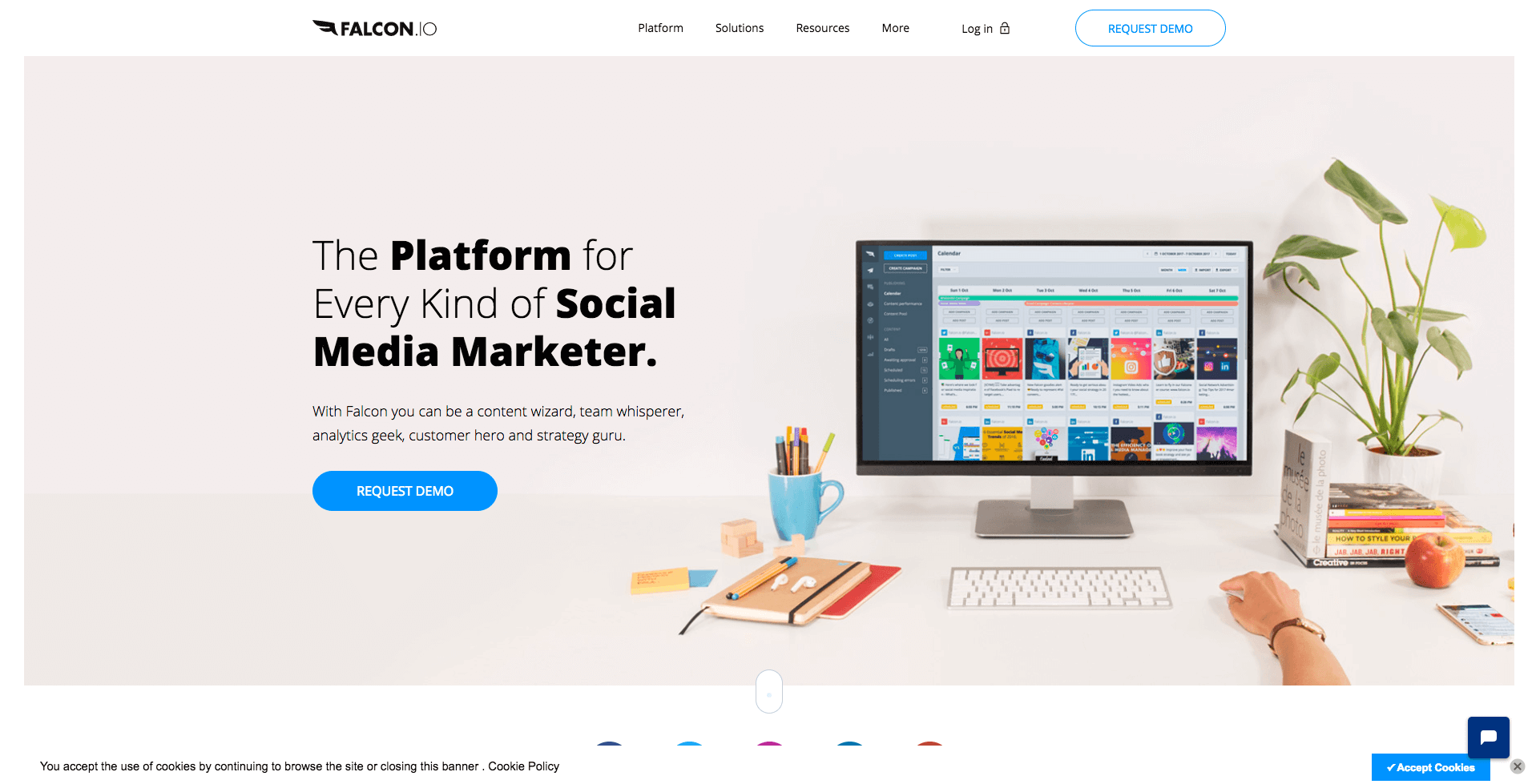
Falcon.io
Falcon.io is a social media management platform that helps marketers publish content on social media and gather insight on how each campaign is performing. This solution features tools to manage social media engagement, perform social media listening, see all your audience data easily, and to measure performance across channels. Falcon.io integrates with GA to analyze whether incoming traffic is organic or paid.
Users consistently say that Falcon.io is a great tool for organizing and scheduling content across channels. Reviewers are pleased with the CPC rates they have seen with their advertising campaigns.
“We found one such feature within Falcon.io that allowed us to extract unique target audience sets from our listening query results. This unique and powerful functionality allowed us to run strong advertising campaigns.”
~ Verified User | Manager in Marketing | Marketing and Advertising Company
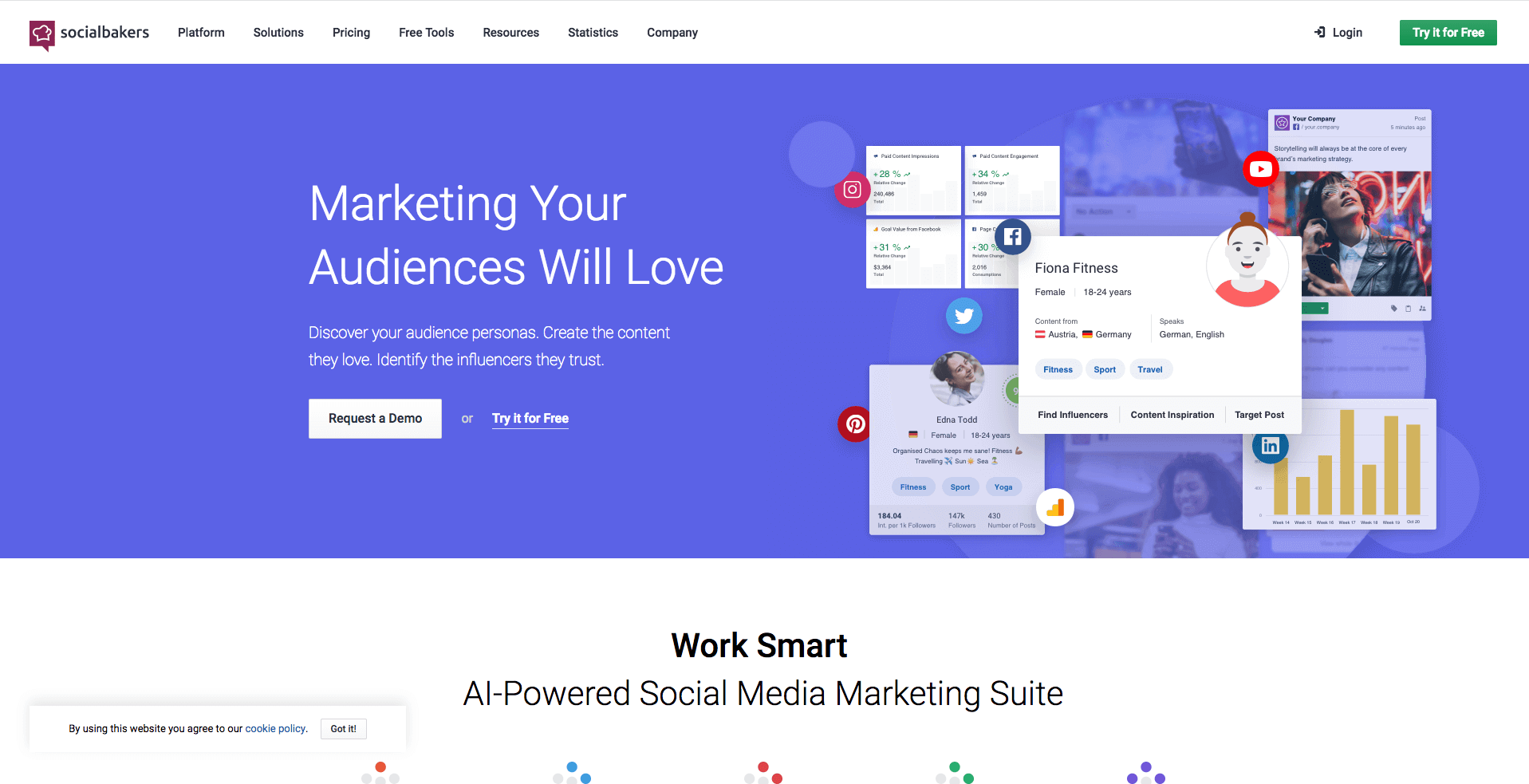
SocialBakers
SocialBakers is an AI-powered social media management platform. This solution features tools to create audience personas, content creation and management, social media management, customer service and monitoring, community management workflows, and analysis reporting. SocialBakers integrates with GA to track paid advertising activities and their impact on brand engagement goals. This integration also tracks organic activity.
Users tend to highlight SocialBakers analytic capabilities, saying that they are accurate, comprehensive, and easy to export in different formats. Users rely on SocialBakers for organizing, publishing, and monitoring social media content.
“We use Socialbakers to have better insights and better statistics about our social networks and our competitors. It’s also very helpful to follow the mentions we have had. The option of reports they give you are truly great.”
~ Alejandro Matheu | Digital Marketing Manager | Paradise Professional Development School
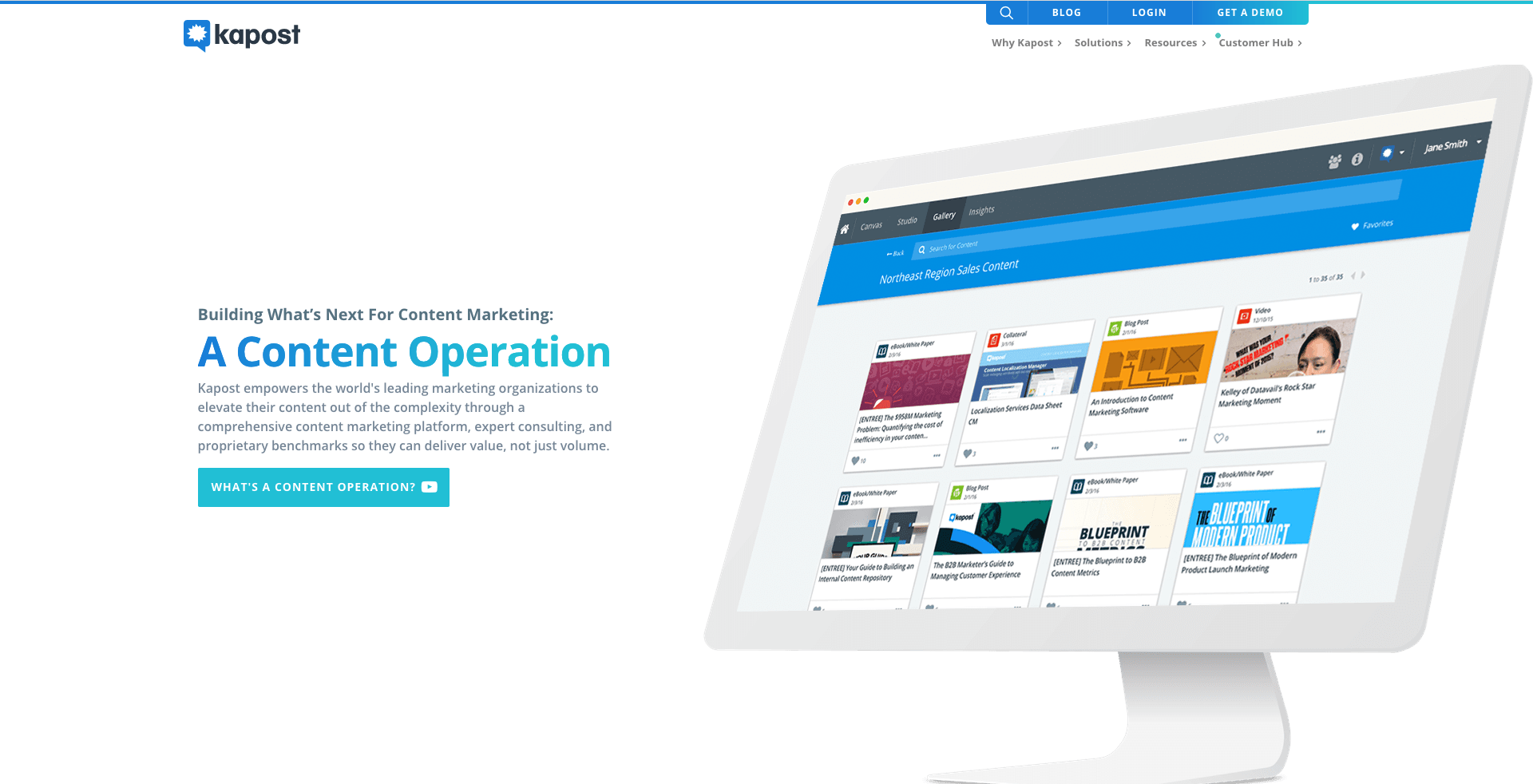 Kapost
Kapost
Kapost is a content marketing platform that enables content marketers to keep all material organized in one system. It enables different teams to put content ideas together so that there is no mixed messaging coming from a brand. This solution shows campaign timelines and launch dates, keeping everything organized. Kapost integrates with GA so that you can see metrics from any Kapost published content directly.. This is a unique combination because Kapost also provides separate analytics, distinct from GA’s metrics. With this integration, you get a robust picture of your content’s performance.
Users say that Kapost is a great solution for coordinating content and managing files at scale and across different groups. Users are satisfied with the workflow capabilities, making it easier to see where projects of all different content types are at in development.
“Kapost has potential to be a great asset in small and large orgs. If you’re not producing a great deal of content, or coordinating across a large team, there’s still tremendous value, but it scales as your organization scales because it makes it easier to coordinate and manage large teams and large content archives.”
~ Scott Barker | Director of Product Marketing | Datawatch Corporation
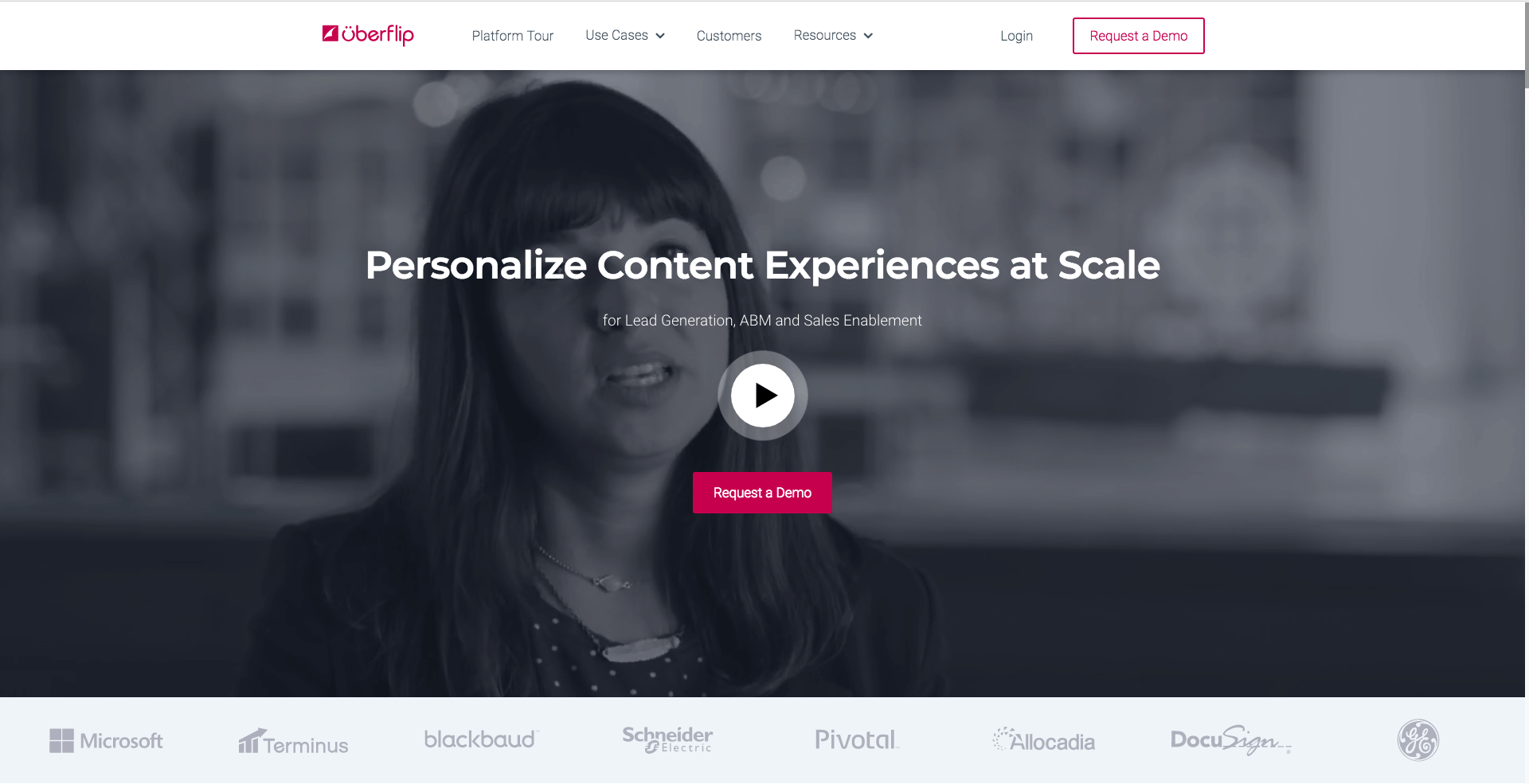 Uberflip
Uberflip
The content experience platform, Uberflip, allows marketers to personalize content at scale. It believes that quality content and consumer experiences go hand in hand across every stage of the buyer journey. This solution uses AI to offer intelligent content and timing recommendations. Content is organized, personalized, distributed, and analyzed all in one platform. You can integrate Uberflip with GA to take a deeper look at how content created using Uberflip is performing.
Performance metrics include who your visitors are, where they come from, when they visited, and why. Users can see bounce rates and exit pages, benchmarks, and which pieces of content are leading to conversion.
Reviewers love that Uberflip can be used across departments for different purposes. They say it makes organizing content, especially content for different groups of people and across different channels, easier.
“We chose Uberflip as our content hub because of its ability to leverage our content across our entire site, capture leads, [and] funnel clients through related content, thus keeping them on our site longer while providing them with relevant information to their initial search.”
~ Shane Adair | Marketing Manager | TAB Bank
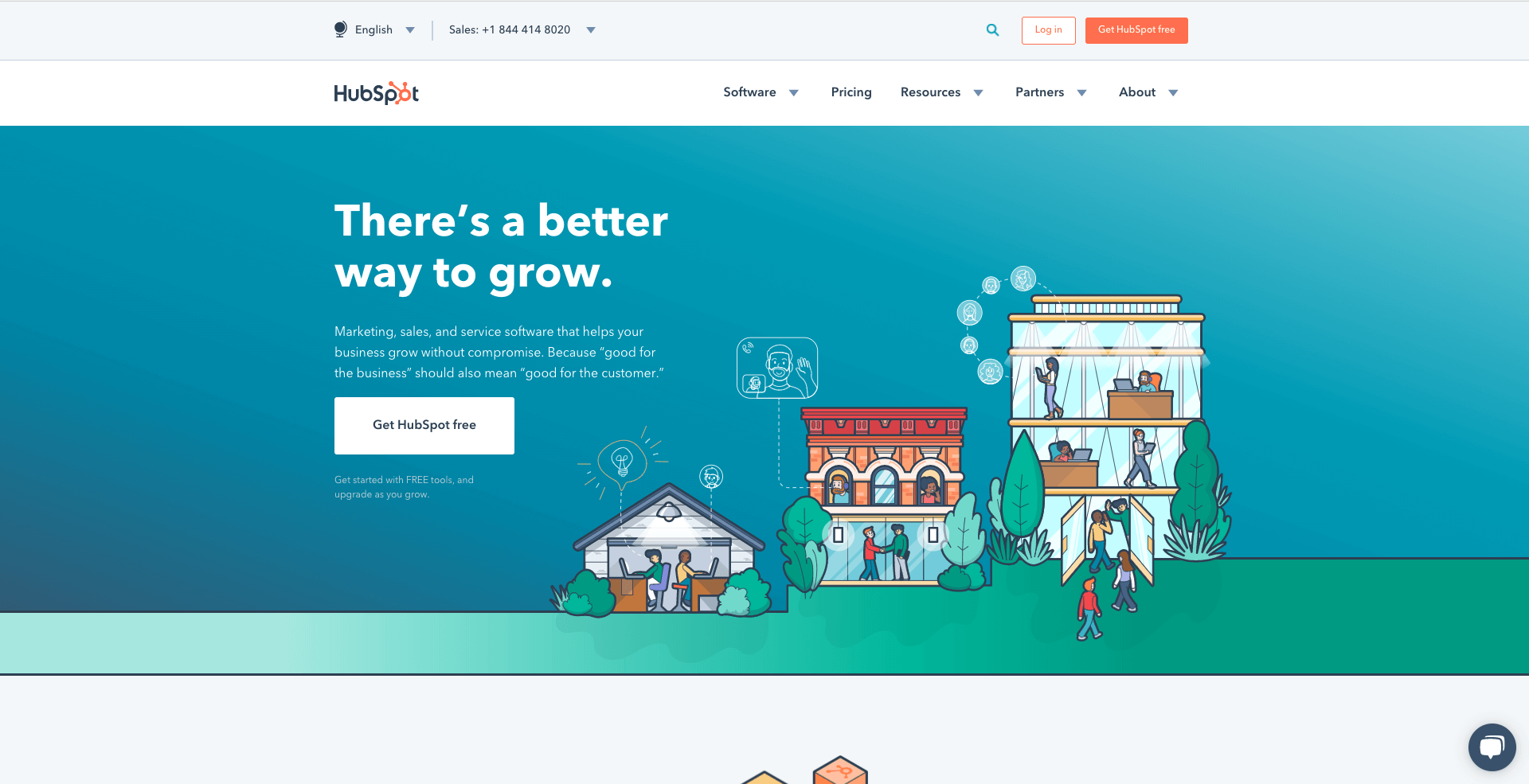 Hubspot
Hubspot
Hubspot is an all-in-one inbound marketing platform. This marketing software features lead generation, content management, marketing automation, and analytics. Hubspot allows users to build and edit their own websites without requiring IT resources, publish polished blog content, personalize messaging, run drip campaigns, and conduct live chats to help increase conversion rates. Hubspot enables websites to easily use GA tracking on their pages and blogs to show how marketing efforts are helping brands reach their goals.
Users love that Hubspot keeps all marketing and sales activities in one place, allowing teams to work better together. Users highlight that this intuitive solution allows their teams to set goals, see how their efforts are achieving those goals, and grow at the pace that their businesses need. In turn, Hubspot’s support team is also highly reviewed.
“Our organization uses HubSpot’s platform to not only manage our own website, its traffic, leads and contacts, but also our clients. It allows us to easily keep all of the website’s goals as well as email marketing, content offers, and social media distribution in one central location.”
~ Christine Austin | Creative Lead, Marketing Team | Impact Branding & Design LLC
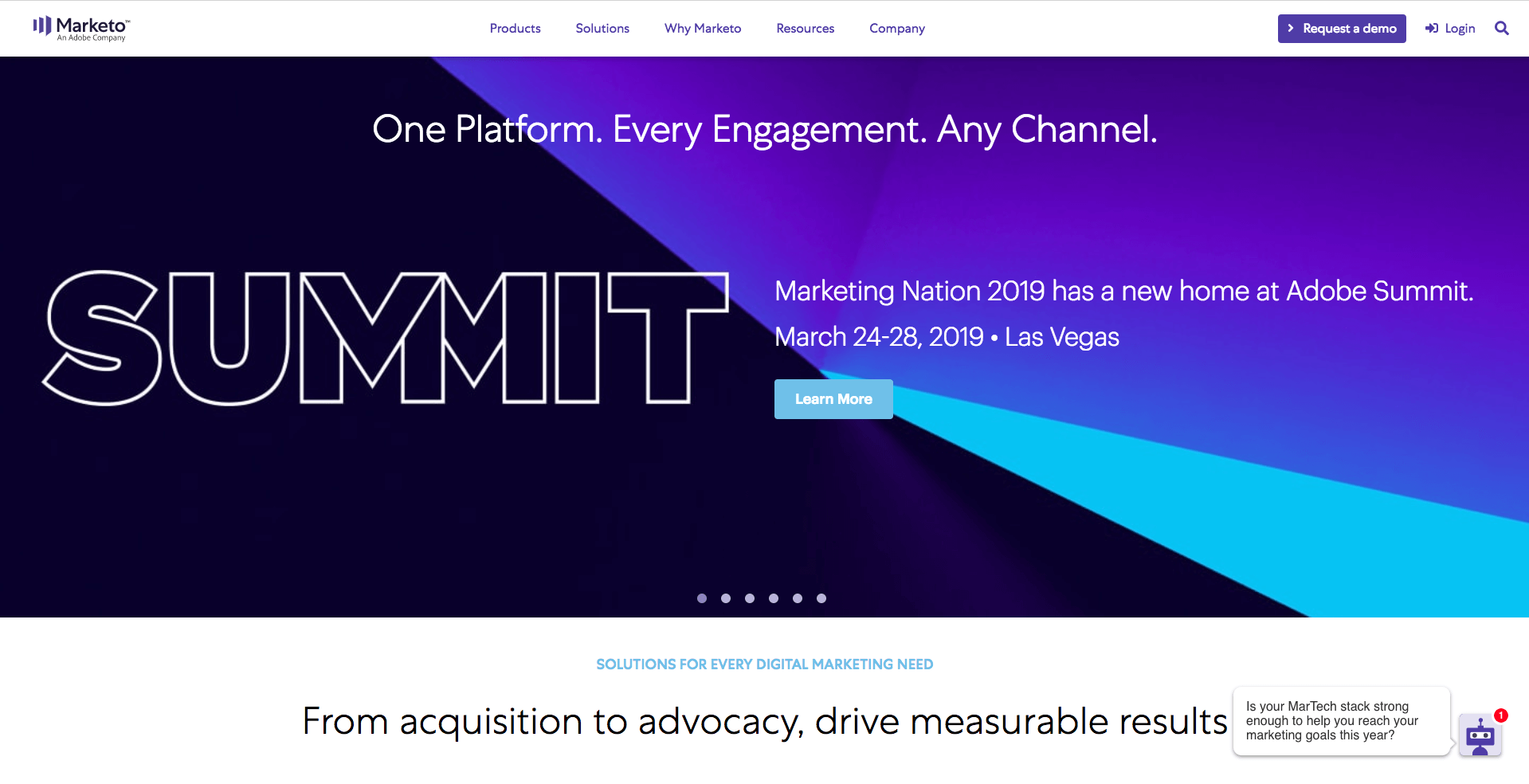 Marketo
Marketo
Marketo is a marketing automation platform that enables users to have digital marketing success. This solution features lead generation, email marketing, consumer marketing, customer base marketing, and mobile marketing. Additionally, Marketo offers message personalization across multiple channels, lead nurturing, and ad-targeting. Marketo has offered a GA integration since 2015 to enable more personalized advertising and engagement marketing.
Reviewers consistently point to Marketo’s robust capabilities for email campaigns, design customization and email templates, upsell and cross sale benefits, and automation. Many also highlight the lead scoring capabilities.
“We have a “zero cracks” initiative where we want NO lead or action to be unnoticed or followed up with. Scoring capabilities are very advanced, and we’re able to score and re-assign leads based on activity. I honestly don’t think we’d be able to have a zero cracks initiative without Marketo.”
~ Ian Nate | Digital Marketing Operations Manager | SaltStack
Analyzing data is easier when Google Analytics integrates with your marketing software solutions. Read peer reviews to learn more about which marketing tools will help you understand your content better and ultimately drive results.
Was this helpful?